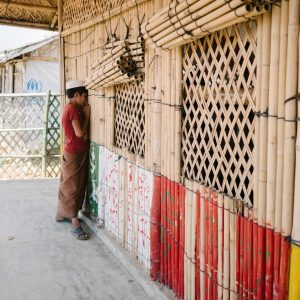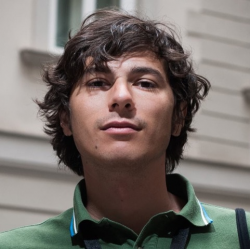


Raudah Yunus is a researcher, epidemiologist, writer and social activist based in Kuala Lumpur, Malaysia, who in 2018 took part to the IAP Young Physician Leaders (YPL) programme. She is now conducting a field study on the Rohingya community in Kuala Lumpur to explore and understand the experiences of socio-economically marginalized groups such as refugees during the COVID-19 pandemic. Her aim is to understand how COVID19 disproportionately affects them, and frame the problem using the health equity and social justice perspectives.
The Rohingya are a stateless Muslim minority in Myanmar. According to the United Nations High Commissioner for Refugees (UNHCR), over a million Rohingya refugees have fled violence in Myanmar in successive waves of displacement since the early 1990s. The latest exodus began on 25 August 2017, when violence broke out in Myanmar’s Rakhine State.
Raudah recently published, together with other fellows of the Equity Initiative (EI), a report titled ‘Vignettes of Equity: A glimpse into COVID-19 in Southeast Asia’, a publication that includes a series of case studies that discuss the impact of COVID-19 on different vulnerable populations in Southeast Asia.
As she wrote,
In times of crisis and disease outbreak, marginalized groups – including the refugee communities – are often forced to face greater adversities. First, the stigmatization of being the source of disease renders them vulnerable to more mistreatment and deprivation. Second, their irregular status can easily land them in detention centres – squalid and crowded – thus further increasing their risks of contracting COVID-19. If there is one thing this pandemic has taught Malaysia, it is important to treat its migrant populations fairly, not only in terms of health access but also its wider social determinants. In the end, the health status of both groups – the host society and refugee communities – are interdependent.
You can read the full document here.
Raudah Yunus is also working with a local NGO called READ Malaysia that assists refugees and the urban poor - especially children. Currently, they are trying to facilitate access to school for a number of refugee children whose families have been negatively affected by the pandemic.
“These children did not have access to formal education either due to poverty, exacerbated during the lockdown period, or arrest of caregivers,” she says.
“My experience with the YPL program was eye-opening and has greatly helped me connect with individuals who are passionate about making meaningful changes in health for their communities,” she highlights.
“I was - and still am - extremely grateful for the opportunity and learning experience obtained through this program. The IAP YPL programme allows me to learn, grow and draw inspiration from colleagues across the world. The most important skills YPL taught me were those related to leadership, innovation and critical thinking - these continue to impact my professional career and growth to this day,” she adds.
Photo: Courtesy of Equity Initiative.
